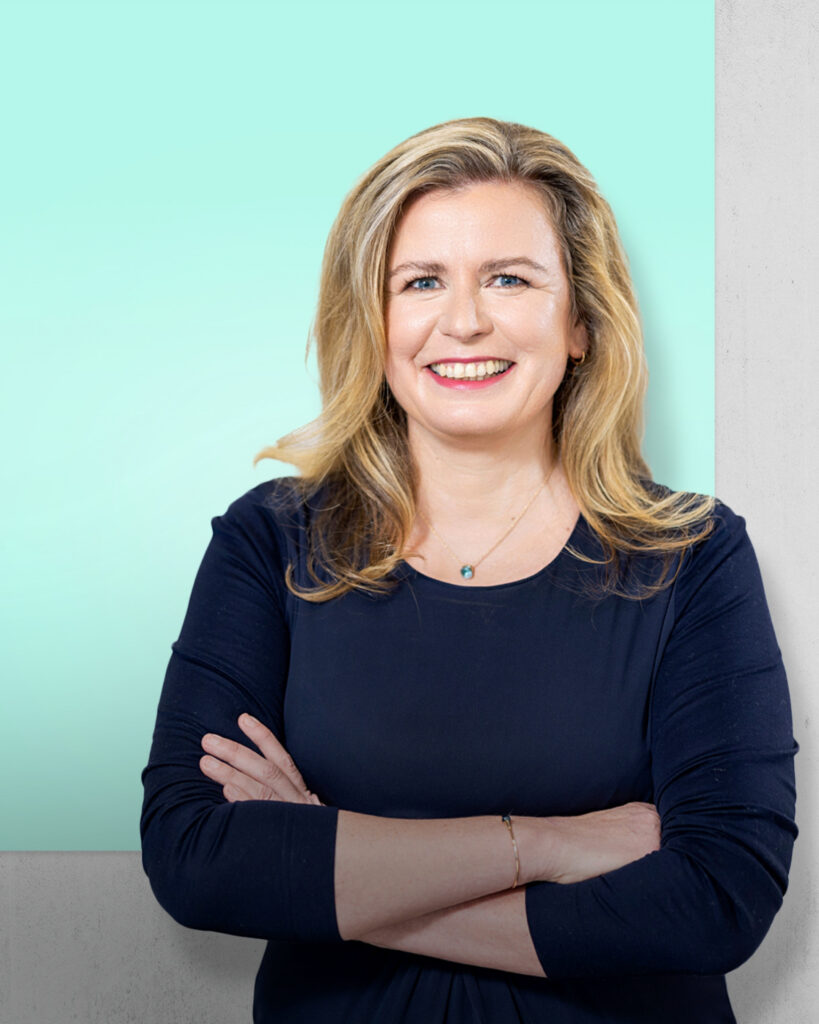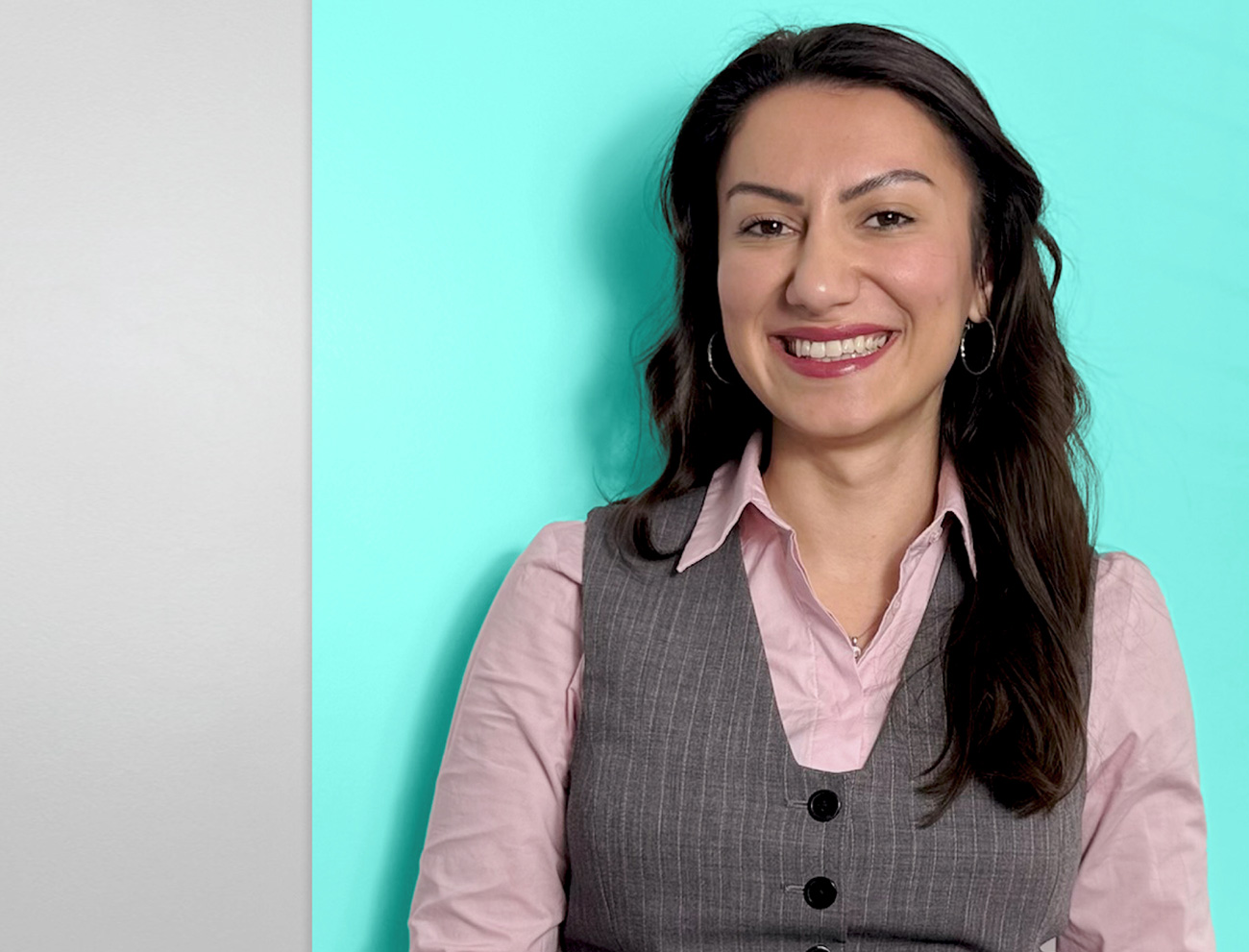INTERVIEW SERIES
VoltageWomen
Actively seizing opportunities:
Interview with Brigitte Kurz
Brigitte discovered her enthusiasm for entrepreneurship and finance at an early age. Today, she is Chief Financial Officer of the Trench Group and manages the company’s finances. In this interview, she talks about her personal and professional career: from her own impatience and courageous career moves in a male-dominated field to thoughts on leadership and team culture.
Brigitte, please tell us how you got to where you are today?
I’ve always had an interest in numbers and business contexts – in how to manage a company. I had already noticed this at school, as in Austria we also get vocational training in high school. I always really enjoyed the subjects in finance. That’s when I realized that I wanted to do this as a career.
Instead of studying business administration, I went straight into working life and took on a position in Controlling. My boss at the time gave me the opportunity to get to know other areas of finance and understand the big picture. I quickly realized that I needed to go one step further in terms of training. I did a controlling course while still working and later studied International Business Management simultaneously. That was an ideal set-up for starting out in finance in an international context.

When did you take on your first leadership role?
I actually took over as Head of Controlling at another company in my early 20s, parallel to my training and studies, and built up the department from scratch. I was also very lucky with my boss at the time, who placed the necessary trust in me as a young woman and supported me.
Did you realize early on that it would lead to the CFO position?
I didn’t have a concrete plan at the beginning. However, I knew very quickly that I didn’t just want to be responsible for one area, I wanted to manage the interaction between the various elements. I was incredibly fascinated by co-designing and co-deciding. That’s why it was clear to me early on that I wanted to take on responsibility. I then had my first CFO role at the age of 27.
27 years is very young. Was that challenging?
Absolutely! To achieve this goal, I had to change employers more often because from small to medium-sized companies, the next career step was often not possible. But it’s not always easy. You’re constantly taking a new risk because you always have to adapt to new situations and a new environment. That’s the opposite of a comfort zone.
Looking back, were there any key moments in your career?
I’ll be honest: I’m not the most patient person. I never wanted to just wait and see, but actively seek out and seize opportunities. Once, at the beginning of my career, I went straight to the CEO when I heard about a vacancy and said that I wanted to do it. I got the job – first on an interim basis, then permanently.
Looking back, the key moments were always those in which I changed my career. When I saw the requirements in the job advertisements, I often thought, I can’t do all that. That’s a thought that often holds many women back. But over time, I’ve learned to embrace it anyway. So, my advice to other women is this: Have courage! No one can do everything — and it’s absolutely okay to keep learning new things.
VoltageWomen
In this interview series, we highlight the inspiring women shaping our company, proving that career paths in technical fields are open to everyone.
Follow Us
Looking back, the key moments were always when I changed my career – even if I didn't fulfill all the job requirements. So my advice to other women: Have courage!
How did you deal with it at work?
You have to admit that you can’t be an expert in everything. You usually have a team of experienced people around you. You won’t lose your edge if you say: “You’re better at this than I am, would you like to explain it to me again?” This also strengthens the team and creates cohesion.
This has also become part of my management philosophy. If you want to build a top team, you have to give them the right degree of freedom. This requires trust, as well as open and clear communication about the goals.
You don't lose your edge when you say: 'You're better at this than I am, would you like to explain it to me again? That strengthens the team and creates cohesion.
Back to finance. What motivates you at work?
A CEO once said to me: “Ms. Kurz, you don’t just need to look at your Excel spreadsheets to understand whether stock levels are too high or too low. Just go into the warehouse and take a look.” I thought that was a very succinct sentence. And I always give that to everyone in finance: You have to get out there, understand how the production works, talk to the people, and learn about the challenges. Only then can you understand what the numbers mean. You don’t experience that at your desk when you only see Excel spreadsheets. I find that fascinating.
This is also important in my CFO role at the Trench Group. It’s often not just about finance, but about many major strategic decisions. The exchange with people is therefore very valuable. I recently visited our sites. I always find that incredibly exciting.
You have to go out there, understand how the production works, talk to the people, get to know the challenges. Only then can you understand what the figures mean.
How do you manage to balance your CFO role with your private life?
An HR manager once taught me an important lesson. She took my cell phone and turned it off with the words: “You don’t have to be available 24/7. It’s not good for you.” I try to make time out for my family. My source of energy is nature – hiking, swimming or simply gardening. I don’t need to constantly check my work phone — the chances of a major crisis are pretty low. And besides, it also has a ringtone!
Related Posts
Related Posts

Result 2025: Trench Group continues on growth course, revenue up more than 30 percent
Trench Group GmbH, a leading global provider of high-voltage power

Trench Group strengthens composite insulator capabilities: Acquisition of RPC production assets secures future capacity and supply
Trench Group and Maschinenfabrik Reinhausen announce the signing of an

Trench Group enhances Grid Reliability offering: Acquisition of Enerlux Power SRL strengthens Power Quality Applications
Trench Group today announces the signing of an agreement to




